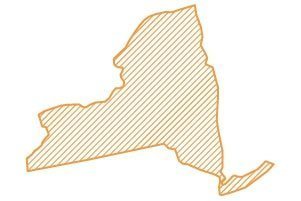Maine is home to a diverse range of Masters in Psychology programs, with one distinguished school offering a unique degree program tailored to aspiring psychologists’ needs. Students seeking advanced education in this field can pursue the University of Maine’s M.A. in Psychological Sciences, which combines theoretical and practical components to prepare graduates for successful careers or further education in psychology. These programs focus on cultivating a strong foundation in research, critical thinking, and professional development, ensuring that students gain the necessary skills and knowledge to excel in their chosen fields.
Master’s in General Psychology
University of Maine M.A. in Psychological Sciences

The University of Maine’s M.A. in Psychological Sciences program, located in Orono, Maine, offers students a comprehensive education in the field of psychology by combining theoretical knowledge with practical application. This accredited program, recognized by the American Psychological Association, allows students to specialize in various concentrations such as Clinical Psychology, Cognitive and Affective Science, Developmental Psychology, and Social Psychology. Through rigorous coursework, research opportunities, and experiential learning, graduates of this program will be well-prepared to pursue further education or a career in the field of psychological sciences.
Maine Psychology and Mental Health-Focused Organizations
- Maine Psychological Association (MPA) – A professional organization representing psychologists and psychology students in Maine, with a mission to promote psychology as a science and profession and to advance the practice of psychology for the benefit of the public.
- NAMI Maine – A statewide nonprofit organization dedicated to improving the lives of individuals and families affected by mental illness. They offer various services and resources, including support groups, educational programs, and advocacy.
- Maine Mental Health Counselors Association (MMHCA) – A professional organization for licensed mental health counselors in Maine, promoting the profession and advocating for the rights of mental health counselors and their clients.
- Sweetser – A nonprofit organization that provides mental health and behavioral health services to children, adolescents, and adults in Maine. They offer various services, including outpatient counseling, residential treatment, and crisis intervention.
- Maine Behavioral Healthcare – A nonprofit organization that provides a range of mental health and substance use disorder services to individuals of all ages in Maine. They offer services in community settings, hospitals, and other healthcare settings.
- Maine Association of School Psychologists (MASP) – A professional organization for school psychologists in Maine, working to promote the profession and advocate for the needs of students and families in the education system.
- Maine Association of Clinical Mental Health Counselors (MACMHC) – A professional organization for clinical mental health counselors in Maine, working to promote the profession and advocate for the needs of clients and their families.
- Crisis and Counseling Centers, Inc. – A nonprofit organization that provides crisis intervention and mental health services to individuals and families in Maine. They offer various services, including emergency response, crisis stabilization, and outpatient counseling.
Maine Data and Mental Health Statistics
- Mental Health in Maine: According to the Maine Behavioral Health Barometer, published by the Substance Abuse and Mental Health Services Administration (SAMHSA), an estimated 20.8% of adults in Maine experienced a mental illness in the past year. The report also found that 4.4% of adults had a serious mental illness in the past year, and 14.4% had a major depressive episode.
- Suicide Rates: In 2019, the suicide rate in Maine was 20.2 per 100,000 people, according to the Centers for Disease Control and Prevention (CDC). This is slightly higher than the national average of 14.5 per 100,000 people.
- Opioid Crisis: According to the National Institute on Drug Abuse, Maine has been hit hard by the opioid crisis. In 2018, there were 354 opioid-related overdose deaths in Maine, a rate of 26.8 deaths per 100,000 people. This is higher than the national average of 14.6 deaths per 100,000 people.
- Mental Health Workforce: According to the National Alliance on Mental Illness (NAMI), Maine has a shortage of mental health professionals, particularly in rural areas. As of 2021, there were only 148 psychiatrists in Maine, and the state had a shortage of mental health professionals overall.
- Access to Mental Health Care: According to the Maine Behavioral Health Workforce Development Collaborative, many Mainers face barriers to accessing mental health care, including stigma, transportation issues, and a shortage of providers. The collaborative recommends strategies such as telehealth, increased training for primary care providers, and greater investment in mental health workforce development to address these barriers.







